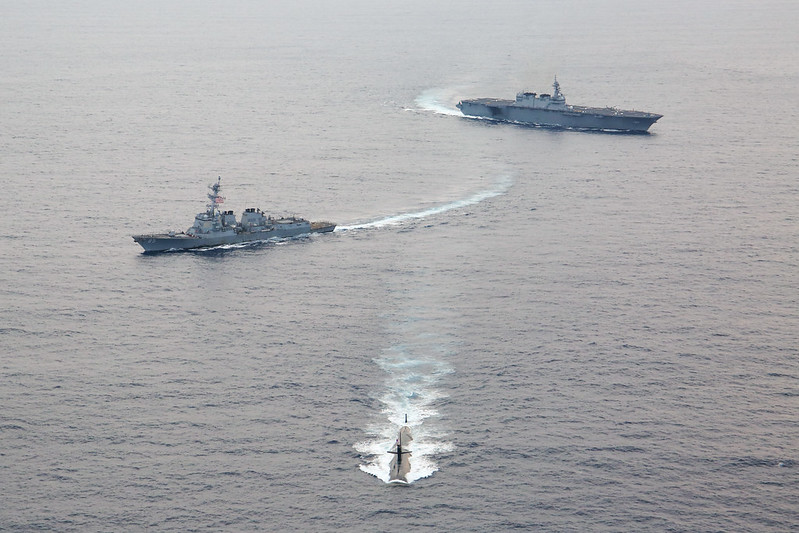 Print This Post
Print This Post- The Strategist - https://www.aspistrategist.org.au -
China’s actions have driven the evolution of the Quad
Posted By Yan C. Bennett and John Garrick on October 29, 2020 @ 06:00

Article printed from The Strategist: https://www.aspistrategist.org.au
URL to article: https://www.aspistrategist.org.au/chinas-actions-have-driven-the-evolution-of-the-quad/
[1] put mind and energy on preparing for war: https://xhpfmapi.zhongguowangshi.com/vh512/share/9464950
[2] weapon systems to Taiwan: https://www.washingtonpost.com/world/2020/10/15/taiwan-china-trump-tensions/
[3] military arsenal: https://thediplomat.com/2020/09/pentagon-releases-annual-china-military-power-report/
[4] ready to challenge: https://www.ncbi.nlm.nih.gov/pmc/articles/PMC7102532/#__ffn_sectitle
[5] do not accede to its will: https://www.foreignaffairs.com/articles/china/2020-04-20/dont-let-great-powers-carve-world
[6] Xi's strategic targets: http://language.chinadaily.com.cn/19thcpcnationalcongress/2017-11/06/content_34188086.htm
[7] Quadrilateral Security Dialogue: https://en.wikipedia.org/wiki/Quadrilateral_Security_Dialogue
[8] Malabar exercises: https://www.navyrecognition.com/index.php/news/defence-news/2020/september/8946-india-invites-australia-to-join-malabar-naval-exercise-along-with-us-japan.html
[9] missile arsenals: https://www.washingtontimes.com/news/2019/nov/25/long-range-missile-test-adds-to-growing-chinese-ar/
[10] nuclear reach: https://chinapower.csis.org/china-nuclear-weapons/#:~:text=The%20fielding%20of%20the%20new%20DF-41%20has%20the,range%20than%20any%20other%20missile%20in%20the%20world.
[11] denial of market access: https://time.com/5835561/china-block-australian-beef-imports/
[12] predatory economics: https://thediplomat.com/2020/07/securing-japan-from-chinese-predatory-economics/
[13] imprisonment of foreign citizens: https://www.nytimes.com/2020/06/19/world/asia/china-canada-kovrig-spavor.html
[14] Australian Foreign Minister Payne: https://www.abc.net.au/news/2020-10-07/mike-pompeo-only-one-of-three-other-allies-to-call-out-china/12738584
[15] reluctance: https://www.rand.org/blog/2020/07/the-quad-is-poised-to-become-openly-anti-china-soon.html
[16] Chinese vessels: https://www.japantimes.co.jp/news/2020/07/27/national/china-japan-senkaku-islands/
[17] claims: https://asiatimes.com/2020/10/quad-gains-traction-as-unified-anti-china-front/
[18] Japan and the US have also spoken: https://www.japantimes.co.jp/news/2020/08/11/national/politics-diplomacy/japan-hong-kong-china-arrests/
[19] its 2017 national security statement: https://www.whitehouse.gov/wp-content/uploads/2017/12/NSS-Final-12-18-2017-0905.pdf
[20] balancing of approaches: https://www.indiatoday.in/magazine/diplomacy/story/20070611-the-quadrilateral-has-a-geopolitical-significance-indo-japan-748371-2007-06-11
[21] space alliance: https://intpolicydigest.org/2020/08/01/a-space-alliance-between-the-quads-the-united-states-japan-australia-and-india/